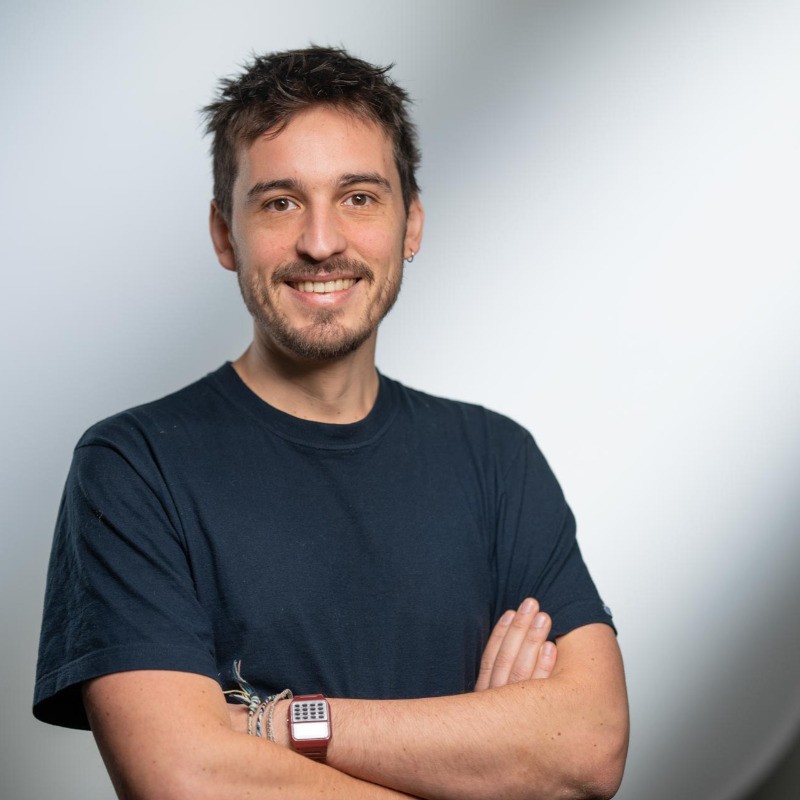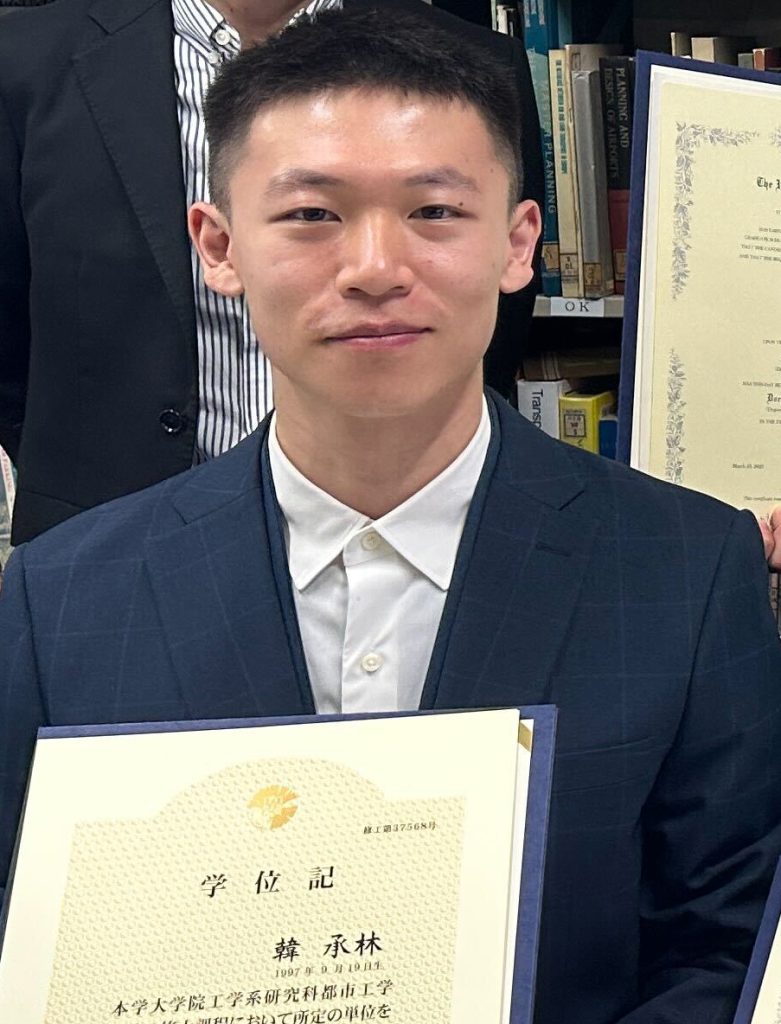Phoebe Ho
Visiting Ph.D. Scholar (Summer 2025)- UC Berkeley
Research Topic:
Towards Robust Model Validation: A Toolkit for Validating Discrete Choice Models in Travel Behavior Research
Research Output Highlight:
Over the summer, I developed the code infrastructure needed to implement various validation methods, which will be integrated into a broader Discrete Choice Model Benchmarking framework developed at Berkeley. This toolkit will also be leveraged to conduct a validation study to guide researchers in selecting appropriate validation approaches.
Read More
Why did you choose our laboratory?
I chose this lab for its expertise in travel behavior modeling and validation, areas that align closely with my research interests.
How would you describe your life as a visiting researcher at the lab?
My experience as a visiting researcher was very enjoyable. The lab had a very relaxed atmosphere over the summer and everyone I met was very friendly and welcoming. Weekly lab meetings were a great opportunity to learn about different research topics. There was a nice balance between productive work and socializing, e.g., getting lunch together and visiting the Sou Fujimoto exhibition after work (the architect of the Osaka Expo 2025 Grand Ring). I also got to participate in two seminars, which was a great way to meet fellow visiting researchers in the field.
What was your research topic about? any interesting findings?
The lack of validation in travel behavior research can undermine the credibility and real-world applicability of research findings. The goal of this work is to lower the barriers for conducting validation by developing a Python-based toolkit to standardize and streamline the validation of discrete choice models in travel behavior research. We are currently working on comparing the performance of different validation approaches.
How would you describe the research guidance provided by your host?
The guidance was well-balanced. There was plenty of autonomy, allowing me to make progress independently, but there was always support and advice when needed to discuss findings and plan next steps, making it a productive and collaborative experience overall.
What did you like most about Japan?
The public transportation, of course. The convenience and accessibility allowed me to explore so many different neighborhoods in Tokyo (my favourite being Kichijōji).
What is your plan after returning to the US?
After returning to the US, I plan to continue this validation work, work toward publishing a paper, and focus on finishing my dissertation.
Any message to new/prospective students?
The lab provides a very supportive environment for learning and research – make the most of it. Also, don’t make a habit of staying in the lab too late – make sure to get out and explore Japan!
Benjamin Gramsch-Calvo
Visiting Ph.D. Scholar (Spring 2024)- ETH Zurich
Research Topic:
Travel behavior, social networks and destination choice
Research Output Highlight:
We proved that ignoring social interactions between friends in travel demand models leads to a underestimation of the kilometers traveled. Also, we were able to measure the trade-off in travel times between members of a group of friends when they engage in leisure travel. You can see the paper here.
Read More
Why did you choose our laboratory?
Because of its interest in social networks. I have been always interested in understanding the social aspect of transportation, and my research in Zurich is related to this as well, so it was a perfect match in terms of research topics. I also was very interested in collaborating with researchers at the University of Tokyo, as it is a well-known university worldwide.
How would you describe your life as a visiting researcher at the lab?
The lab was very heterogeneous in research and nationalities, which made it a nice place to discuss ideas and learn about new topics.
What was your research topic about? any interesting findings?
My research topic was to integrate the travel impedance of friends in a destination choice model, this will help to understand how people make travel decisions in group. More than a finding, the most interesting result was that we were able to measure the importance that friends play in the decision to go to a place, showing that it is very important to include social interactions in travel demand model if we are interested in understanding where people go in their free time.
How would you describe the research guidance provided by your host?
The guidance was a good mix between having the freedom to come up with my own ideas, and advices on how to shape the work to make it scientifically relevant. Also, there was a horizontal exchange of ideas which made it very easy to come up when I had questions or problems.
What did you like most about Japan?
Besides of the lab, my favorite thing was the food and culture. I think Japan is an amazing country to do a research stay because it allows to know the country in a way that is different than going for a couple of weeks as a tourist. There is always things happening that make it such a vibrant place, where it is very hard to get bored.
What is your plan after returning to Switzerland?
My plan now is to finish my doctorate, keep working on the intersection between social networks and travel demand, and hopefully go back to Japan in the not-so-distant-future.
Any message to new/prospective students?
If you have the opportunity, take it. Japan has many things to offer as a country that will never stop surprising you. Also, the lab offers many good opportunities to develop yourself academically and professionally, the nice relation between academics and students make it very easy to exchange opinions and propose new ideas.
Chenglin Han
Master’s Course – Class of Spring 2023
Research Topic:
Social Networks and Travel Behavior
Research Output Highlight:
We showed that showed that accounting for group-level utility in a destination choice model improves considerably the predictive ability of the model, compared to a model that assumes individual-level behavior.
Read More
Why did you decide to study in Japan?
I decided to study in Japan because of its renowned academic programs, advanced technology, and rich cultural heritage. Japan’s commitment to innovation and excellence in research attracted me to pursue my studies here.
Why did you choose our lab?
I chose our lab because of its esteemed reputation in the field, cutting-edge research projects, and supportive academic environment. I was particularly drawn to the opportunity to work with renowned professors and collaborate with talented peers.
How would you describe your student life at the lab?
My student life at the lab has been enriching and fulfilling. I have had the opportunity to engage in diverse research projects, attend seminars and workshops, and participate in an academic conference in Nagasaki which was quite impressive. The supportive faculty and collaborative atmosphere have made my experience truly rewarding.
What was your research topic about?
My thesis focused on deepening our understanding of group travel behavior, particularly in relation to leisure activities. I developed a destination choice model to explain joint eating-out activities, and showed that accounting for group-level utility improves considerably the predictive ability of the model, compared to a model that assumes individual-level behavior. I think we were the first ones to develop such a mode. My research has been publised in the Journal of Transport Geography(Impact Factor: 6.1), so if you are interested please take a look.
How would you describe the research guidance provided by your supervisors?
The lab professors provided excellent research guidance, offering valuable insights, mentorship, and support throughout my academic journey. Their expertise and dedication have been instrumental in shaping my research skills and academic growth.
What did you like most about Japan?
What I liked most about Japan is its blend of tradition and modernity, vibrant culture, and welcoming people. The opportunity to immerse myself in Japanese culture, explore its scenic beauty, and experience its technological advancements has been truly inspiring.
What did you do after graduation?
After graduation, I returned to China and am working in an automotive company, focusing on data analysis related to product design. I aim to apply the behavioral modeling methods I have learned to gain insights into user needs and provide decision-making recommendations for product design.
Any message to new/prospective students?
To new and prospective students, I would like to encourage you to seize every opportunity to explore and learn during your time in Japan. Embrace the challenges, cherish the experiences, and make the most of your academic journey. Our lab offers a supportive and dynamic environment where you can thrive and excel in your research endeavors.


